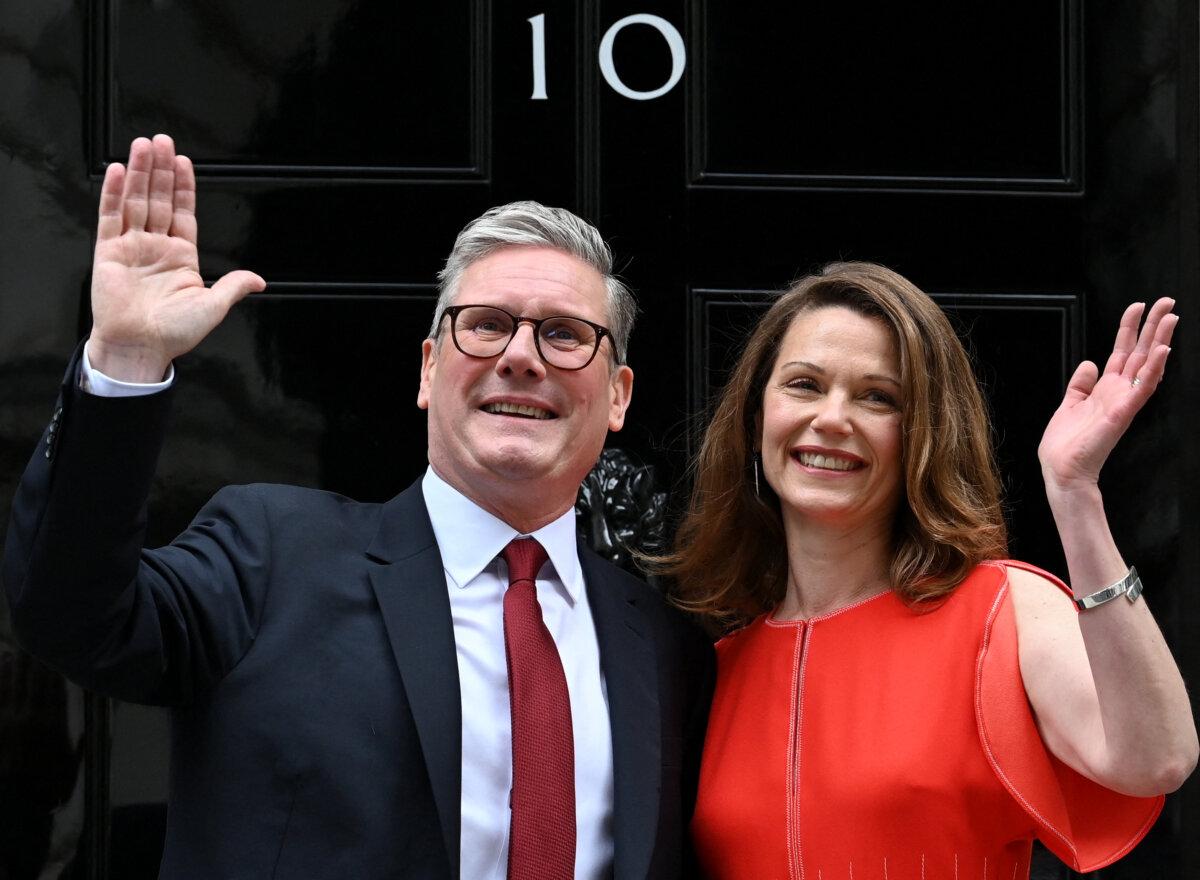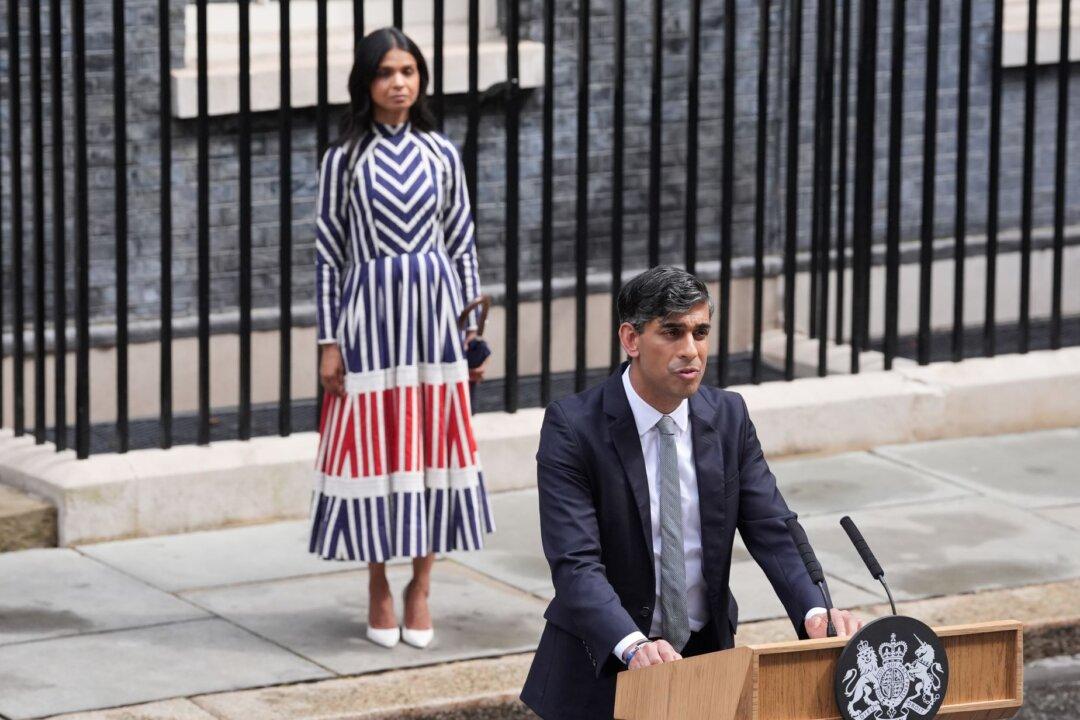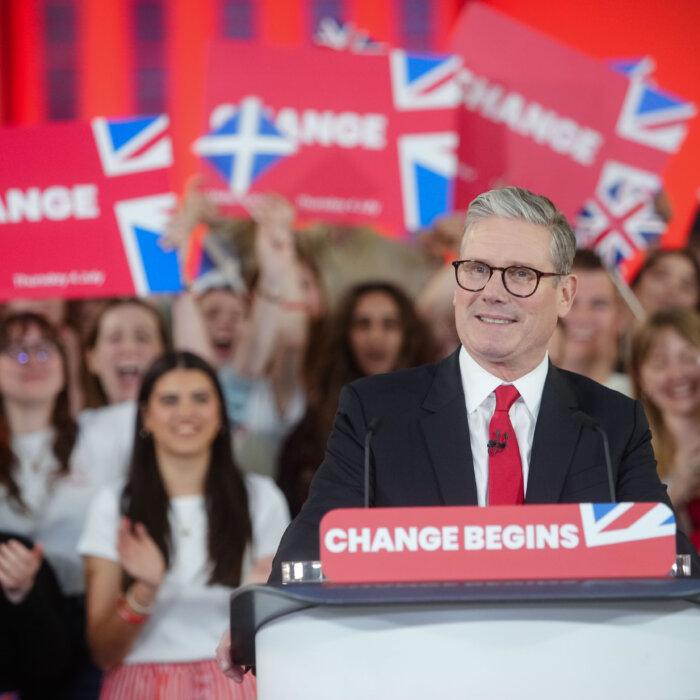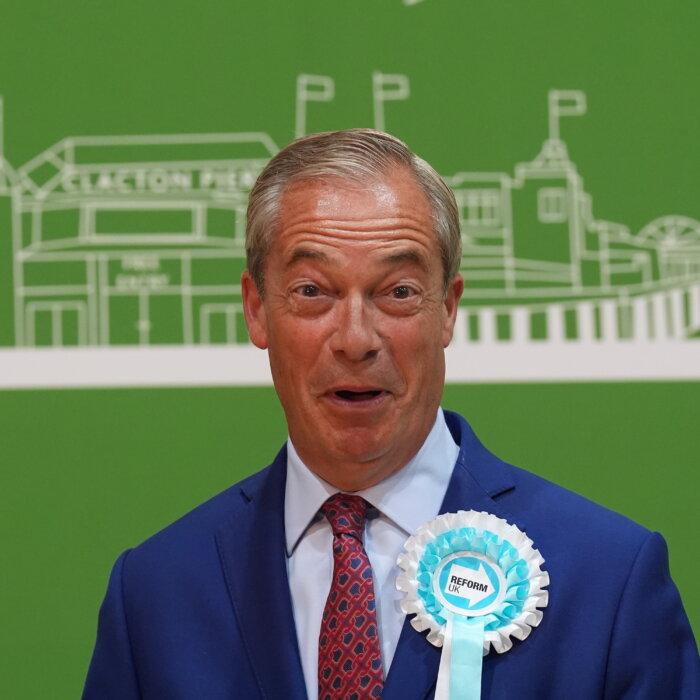Rishi Sunak announced he will step down as party leader as he apologised for steering the Conservatives to their worst-ever election result as a Labour landslide swept Sir Keir Starmer into Number 10 Downing Street.
The former prime minister, who won his seat but lost 250 colleagues overnight, confirmed he will quit as Tory leader once the process of choosing his successor is underway, potentially triggering another round of Conservative infighting as the party’s remaining MPs scramble to replace him.
Sir Keir today became the country’s seventh Labour prime minister—and only the fifth to win a general election—after a disastrous night for the Tories which saw former prime minister Liz Truss and a dozen serving Cabinet members lose their seats.
In a statement outside Number 10, with his wife Akshata Murty standing behind him, Mr. Sunak said: “I will shortly be seeing his majesty the king to offer my resignation as prime minister.
“To the country, I would like to say first and foremost, I am sorry.
“I have given this job my all, but you have sent a clear signal that the government of the United Kingdom must change. And yours is the only judgment that matters.
‘A Difficult Day’
As things stood when Mr. Sunak spoke on Wednesday morning with 648 of the 650 Commons seats declared, Labour had a majority of 176, winning 412 seats with the Conservatives on 121.Mr. Sunak said: “Following this result, I will step down as party leader—not immediately, but once the formal arrangements for selecting my successor are in place.
“It is important that, after 14 years in government, the Conservative Party rebuilds, but also that it takes up its crucial role in opposition professionally and effectively.”
He added: “This is a difficult day at the end of a number of difficult days. But I leave this job honoured to have been your prime minister.
“This is the best country in the world. And it is thanks entirely to you, the British people, the true source of all our achievements, our strengths and our greatness.”
After speaking in Downing Street, Mr. Sunak was taken by car to Buckingham Palace to officially resign as prime minister before Sir Keir was formally asked to form a government.
His resignation follows a dramatic night in which Ms. Truss narrowly lost to Labour in Norfolk South West, where she had been defending a large majority of more than 24,000.

12 Cabinet Ministers Unseated
Twelve ministers who sat around the Cabinet table failed to hang onto their seats, comfortably exceeding the previous record of seven set in 1997 when Sir Tony Blair swept to victory.Commons Leader Penny Mordaunt, Defence Secretary Grant Shapps, Welsh Secretary David TC Davies, Transport Secretary Mark Harper, Attorney General Victoria Prentis and Veterans Minister Johnny Mercer all lost to Labour candidates.
Education Secretary Gillian Keegan, Justice Secretary Alex Chalk, Science Secretary Michelle Donelan, Culture Secretary Lucy Frazer and Illegal Immigration Minister Michael Tomlinson lost to the Liberal Democrats, who in something of a comeback won 71 seats—although they placed behind Reform in terms of how many votes they received overall.
Played a Prominent Role
Conservative Deputy Chairman Jonathan Gullis and former cabinet minister Sir Jacob Rees-Mogg were also unseated by Labour.Tory survivors included party chairman Richard Holden, who clung on by just 20 votes in Basildon and Billericay, and outgoing Chancellor Jeremy Hunt, who held off a Lib Dem challenge in Godalming and Ash.
Former Labour leader Jeremy Corbyn held on to his seat in Islington North as an independent, seeing off the challenge from his former party in the constituency he has represented since 1983.
Reform UK leader Nigel Farage won his Clacton seat—in his eighth attempt to enter Parliament—and promised his party would “stun all of you” as it picked up four seats and finished third in the popular vote.
The Greens won four seats, including the newly created Bristol Central taken by co-leader Carla Denyer, who defeated Labour’s shadow culture secretary Thangam Debbonaire.
In Northern Ireland, Sinn Fein held onto its seven seats, making it the largest parliamentary party in Northern Ireland, but its MPs do not take their seats in the Commons because of their Irish republican beliefs.







